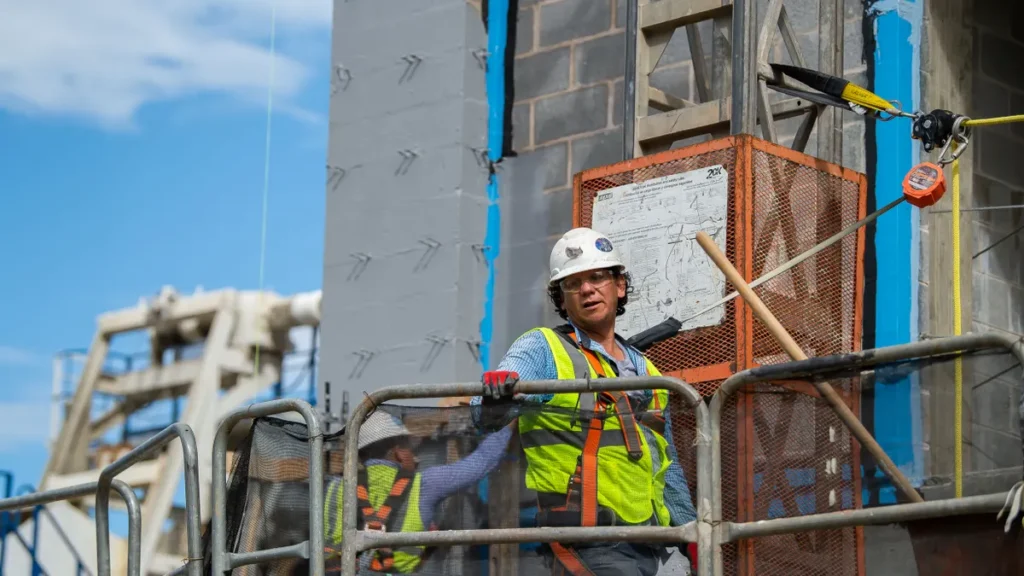
Introduction: A High-Stakes Year for Commercial Contractors
The role of commercial construction contractors in 2025 is more crucial—and more complex—than ever before. From urban mixed-use developments to warehouse expansions and healthcare builds, demand across the UK is pushing contractors to balance scale, speed, and sustainability. With tighter regulations, fluctuating costs, and rising client expectations, success depends on adaptability, innovation, and execution.
In this post, we’ll break down what’s driving the commercial construction sector this year, how top firms are delivering results, and what clients should expect from their contractor partnerships. We’ll also explore how advancements in construction technology, changes in procurement models, and shifting investment priorities are influencing the commercial space today.
Commercial Construction Demand: Where the Growth Is
The UK’s commercial building sector is forecast to grow by 4.8% in 2025, led by logistics, office refurbishments, and hospitality recovery. These projects often span tens of thousands of square feet and require precise sequencing, multiple stakeholders, and tight cost control.
Major growth areas include:
- Warehousing & logistics hubs: Driven by continued e-commerce expansion and retail restructuring.
- Healthcare & life sciences: NHS upgrades and private lab space developments are booming post-pandemic.
- Hospitality & leisure: Modernisation of hotels, gyms, and entertainment venues as travel rebounds.
- Office retrofits: Sustainable refits and co-working conversions are now standard in many cities.
Commercial construction companies must now adapt not only to increased demand but also to changing client requirements such as hybrid work infrastructure, ESG compliance, and wellness-centric designs. Projects that once followed traditional office plans now require advanced HVAC systems, operable windows, smart building tech, and flexible layouts built to last for a fast-changing economy.
Who Are the Top Commercial Contractors?
The best commercial construction companies offer more than project delivery—they provide strategic insight, financial transparency, and post-handover support. Characteristics that define the top firms in 2025 include:
- Full in-house capability: From pre-construction planning to MEP coordination and compliance management.
- Digital delivery systems: Real-time dashboards, cloud scheduling, and integrated design tools like BIM.
- Sustainability expertise: LEED, BREEAM, and WELL-standard builds are no longer niche—they’re expected.
- Modular and prefab experience: Reducing build time and labour strain on complex projects.
Additionally, the top firms are investing in AI-driven project tracking, robotics for onsite inspection, and smart safety systems that monitor risks in real time. These advancements lead to better margins, safer environments, and quicker closeouts—qualities increasingly sought by investors and developers alike.
Challenges Facing Commercial Construction Firms in 2025
Despite strong demand, commercial contractors are grappling with several industry-wide pressures:
- Skilled labour shortage: Site managers, steel fixers, and MEP specialists remain in short supply.
- Inflation & cost risk: Fixed-price contracts are harder to sustain when material prices shift monthly.
- Planning delays: Local authority backlogs can push start dates back by 3–6 months in some regions.
- Complex stakeholder coordination: Projects now involve more consultants, certifiers, and client-side managers.
More contractors are turning to integrated project delivery (IPD) and early contractor involvement (ECI) to mitigate delays and cost risk. By getting involved in pre-design, they help shape the build strategy early—cutting waste and improving outcomes.
Industrial Projects and Specialist Contractors
The rise of high-spec manufacturing, EV facilities, and data centres is creating a niche demand for top industrial construction companies. These projects demand enhanced safety protocols, phased delivery models, and custom mechanical systems.
Clients working in energy, tech, or logistics sectors should seek firms with proven track records in:
- Clean room and GMP-compliant builds
- Robust steel and concrete works
- Infrastructure coordination with utilities and municipalities
- Specialised mechanical and fire suppression systems
Specialist commercial contractors in this space also need to be fluent in risk assessment frameworks, environmental impact protocols, and health & safety compliance to handle large-scale, high-budget facilities.
How to Choose the Right Commercial Contractor in 2025
When shortlisting commercial contractors, consider more than price:
- Track record: Do they have case studies in your sector?
- Financial structure: Are they open about cash flow, retention, and insurances?
- In-house vs subcontracting: More self-delivery can mean better control.
- Contract type: Are they experienced in design & build, JCT, or negotiated contracts?
Also, check their technology adoption. Are they using real-time project dashboards? Can you access live updates? Firms that integrate cloud systems for scheduling, procurement, and snagging offer more transparency and better risk control throughout the project.
Conclusion: The Right Contractor Delivers More Than a Building
In 2025, commercial construction is about strategy, speed, and compliance. The most effective contractors combine technical expertise with Cost Planning, collaborative workflows, and digital tools. They don’t just build—they help clients shape future-ready spaces.
If you’re planning a commercial or industrial build and need clarity on pricing or contractor selection, our team provides detailed Cost Estimation Services, accurate Bill of Quantity documents, and expert Quantity Surveying Services to support every phase of your project.
Explore our commercial construction services | Request a project quote